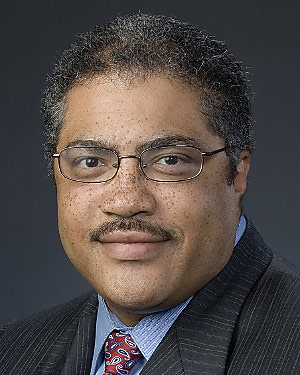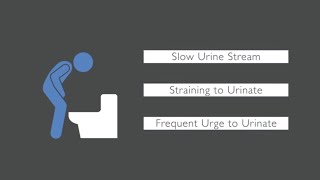-
Arthur Louis Burnett, M.D.

- Director, Basic Science Laboratory in Neuro-Urology
- Patrick C. Walsh Professor of Urology
- Director, Sexual Medicine Fellowship Program
Expertise: Cystocele, Enterocele, Erectile Dysfunction, Gender Affirming Care, Male Sexual Dysfunction
Primary Location: Johns Hopkins Outpatient Center (now called Levi Watkins, Jr., M.D., Outpatient Center), Baltimore, MD
-
Andrew Jason Cohen, M.D.

- Division Director, Benign Urology
Expertise: Benign Prostatic Hyperplasia (BPH), Erectile Dysfunction, Gender Affirming Care, Genitourinary Reconstruction, Hidradenitis
Primary Location: Johns Hopkins Bayview Medical Center, Baltimore, MD
-
Edward James Wright III, M.D.

- Director, Division of Reconstructive and Neurological Urology
- Director of Urology, Johns Hopkins Bayview Medical Center
Expertise: Incontinence, Lower Urinary Tract Reconstruction, Pelvic Floor Disorders, Pelvic Organ Prolapse, Urethral Stricture
Primary Location: Johns Hopkins Bayview Medical Center, Baltimore, MD
Conditions We Treat: Bladder Dysfunction
Bladder dysfunction can be congenital (present since birth), or can be caused by a long-standing obstruction, prior surgery, neurogenic bladder or radiation therapy in the pelvis. Severe bladder dysfunction can lead to debilitating consequences, such as kidney injury, chronic urinary retention or leakage, recurrent severe urinary tract infections, catheter dependence and the need for dialysis. To regain control of urinary drainage, bladder reconstruction or urinary diversion via other means may be necessary.
Request An Appointment Request An Appointment
Schedule by phone
Adults: 410-955-6100
Pediatrics: 410-807-3398

Bladder Dysfunction: Why Choose Johns Hopkins
- We can evaluate and help diagnose the most complex conditions right in the clinic with our expert urodynamic testing capabilities. This series of tests attempts to reproduce your voiding patterns to evaluate how well your bladder can store and empty urine.
- Our surgeons have extensive experience with complex reconstructive urology, including state-of-the-art minimally invasive and robotic procedures.
- Together with your surgical team, our stoma specialists can help guide you through each step of the treatment and recovery process. You’ll receive thorough education, resources and support before and long after surgery.
Trouble Urinating? What Causes Urinary Issues in Men
Trouble urinating? There are many common causes for urinary issues in men. Learn about symptoms and treatment options offered by The Johns Hopkins Brady Urological Institute.
Bladder Dysfunction Experts
Our team will work closely with you to determine which surgical urinary diversion approach will be most beneficial.
Treatment for Bladder Dysfunction
Treating bladder maladies depends on factors such as the severity of the problem and your underlying health. Following specialized diagnostic testing in our clinic, we will work with you to determine the best path to treat your condition.
We offer a variety of surgical approaches to bladder dysfunction, including:
- Continent urinary diversion. This procedure diverts the flow of urine to either a neobladder (a new bladder constructed from a section of the patient’s small intestine) or a surgical stoma (opening in the abdominal wall).
- Diverticulum treatments. We offer open and minimally invasive techniques to repair a diverticulum, which is a pouch that forms in the bladder wall, often due to an obstruction.
- Catheterizable channels. The surgeon will create a channel using a portion of the small intestine. This allows for painless bladder emptying without using the urethra.
- Ileal conduits. A portion of the intestinal tract is used to create an internal pouch that continuously drains through a stoma into an ostomy bag.
- Evidence-based treatment for bladder neck contracture. We are experienced with several approaches to treating this troublesome complication of radical prostatectomy (prostate removal surgery). Our researchers developed a minimally invasive technique that can reestablish the channel between the bladder and urethra without requiring an additional open surgery right after prostate removal.


